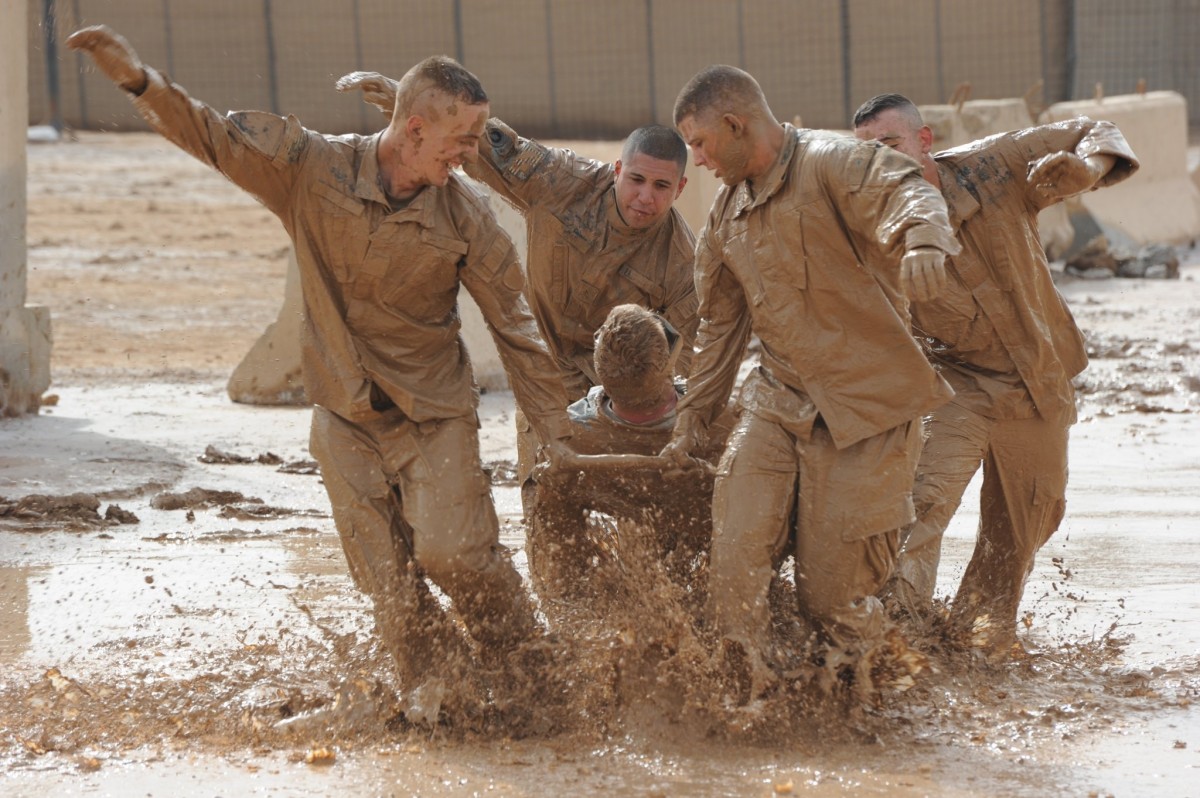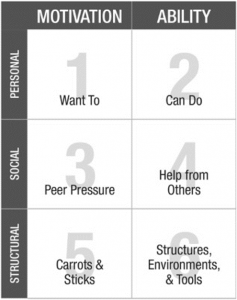Why You Can’t Motivate Your Way to Success Part 2

I had to separate a soldier for a second drug failure very recently. It was hard because this was otherwise a good soldier. Motivated, positive and great at their job; everything you would hope to get in a young E4. They had talked about going to college using their benefits and even looking at ROTC and becoming an officer one day. Then it happened, I get a notification from my Readiness NCO, SPC X has just popped hot for marijuana. After consulting with my leadership team we decided I would, for the first time ever, recommend retention. We met with the soldier and went through the process of getting them counseling. Three months later, I get a second call, SPC X popped hot again. I was actually hurt. I began looking at everything we did and some soul searching. Did we provide this soldier everything they needed to be successful?
In this soul searching I remembered some training I had in crucial accountability. As leaders we all have what are known as crucial conversations – defined as conversations that occur when the stakes and emotions are high and there is a difference of opinion. We come up with action plans and document these in the 4187. Effective counseling doesn’t stop there though, as leaders we have to be more aggressive in the accountability arena.
In crucial accountability we look at the intersections of motivation vs ability. Motivation alone can’t guarantee success. The soldier was motivated to quit marijuana but what we found on our final counseling with the soldier is they lacked the structure and environment for success. We sent the SM to counseling but no one had ever assessed which of the hundreds of programs listed were actually successful. Did we as leaders waste the SM’s time by sending them to an unreliable program? Did we improve their ability to change? Was our help actually helpful? Did the programs we list have a proven track record of success?
The principles of accountability have applicability in our everyday life as leaders. That young E4 who just can’t seem to pass the APFT any more we can try all the usual motivations which usually fall into the carrots and sticks with some peer pressure thrown in for good measure. But are we addressing the ability? Is the remedial PT program effective? Does it target the reason for failure? Is it addressing the SM’s ability to pass the APFT.
In my earlier blog I asserted that we have to drive for ARC, Autonomy, Relatedness and Competence. Crucial Accountability addresses competence, but it places responsibility on both the leader and the led. We need to take a hard look in the mirror and ask ourselves if we are also driving the harder task, ability to challenge. Have we given our soldiers the needed help to achieve competence… the structure, environment, and tools to be successful?
As I reflect on this unfortunate situation, I ask myself how much was the result of “want to” and how much was “structures, environments and tools”. As a leader did I do all I could to provide the right structure, the right environment and the best tools for my soldier to be successful? Or did I just check a box? Did I give SPC X the tools to achieve competency? Some reading this blog might argue yes, others will argue no. The real question is how can I do better next time?
Motivation speaks to the internal reasons for change from personal desire, to group pressure and finally rewards and punishments.
Ability speaks to whether the soldier has the resources to complete the task. Do they have the skills, the necessary personnel and the structure to accomplish a mission?
——
Cale is a National Guard officer who works with Process and Performance Improvement in his civilian career. He holds a Master’s of Science in Healthcare Administration and a Master’s of Business Administration. In his free time he is pursuing a PhD in healthcare administration.
——
Patterson, K. G., Grenny, J. G., McMillan, R. G., Switzler, A. G., & Maxfield, D. G. (2012). Crucial conversations: tools for talking when stakes are high. Singapore: McGraw-Hill.
Related Posts

In All Things, Moderation: A Philosophy for Leaders
Captain Carmody champions a philosophy of moderation for Army leaders. Through moderation, leaders can avoid the burnout of extremes, make wiser decisions, and model balanced, …

Authentic Mentorship – Buzzwords to Breakthroughs
Forget quick fixes—authentic mentorship demands vulnerability, patience, and trust, pushing mentors and mentees beyond comfort zones toward true growth.

Plato’s Republic and the Profession of Arms – Cadet to Officer
A USMA Senior Cadet and Rhodes Scholar, reflects on her upcoming transition from Cadet to Officer through the lens of Plato’s Republic.

